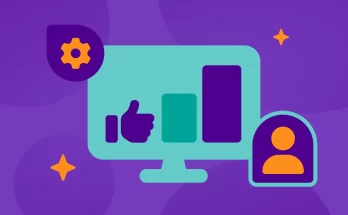In an age where pen-and-paper records are as arcane as VCR tapes, small business owners and freelancers face a critical decision: adapt to the technological age or risk drowning in the data of their own success. Today, accounting software isn’t a luxury—it’s a vibrant necessity within the evolving landscape of business automation.
But why is accounting software so essential? And how does it fit into the larger picture of automation?
The Rise of Automation
Automation is on the rise, and its effects are being felt across industries. From manufacturing to customer service, technology has revolutionised the way we work and communicate.
A recent study by McKinsey & Company estimated that up to 800 million jobs could be displaced by automation by 2030. This shift towards automation has created a need for businesses, both large and small, to adapt and streamline their processes.
At its core, accounting software automates accounting tasks. From bookkeeping to invoicing, this vast ocean of digital solutions streamlines your financial operations into a manageable workflow. It’s less about replacing the brainpower of your human accountants and more about complementing it with tech that can handle the heavy lifting.
The software can be hosted on your local machine or accessed through the cloud, offering flexibility and security. Cloud services are particularly handy for business owners on the move or those who favour remote work for themselves or their teams.
Benefits of Accounting Software for Small Businesses and Freelancers
In the digital era, small businesses and freelancers are constantly seeking ways to streamline operations and improve efficiency. One key strategy is the adoption of accounting software. This powerful tool offers a wide range of benefits, significantly enhancing financial management and operational productivity.
- Time and Cost Savings
Accounting software practically cuts your work hours in half. Mundane tasks such as data entry, once tediously manual, are now automated. This newfound efficiency translates to cost savings in the form of reduced labour hours and minimised errors.
- Increased Accuracy
Shifting from pen to pixels significantly reduces the chance of human errors. Especially for small businesses with a lean team, accurate financial data is the backbone of smart decision-making and future growth.
- Enhanced Financial Analysis and Reporting
With instant access to real-time financial data, you’re always up-to-date on the state of your business. The software can crunch numbers and present them in a visually digestible format, turning financial jargon into actionable insights.
- Improved Security
Securely storing and backing up your data is a priority that accounting software doesn’t take lightly. In an age where data breaches can cripple even the most robust businesses, the security features of these platforms are more critical than ever.
Features to Look for in Accounting Software
When choosing your accounting software, it’s essential to look beyond the surface and consider the features that will directly address your business needs.
- Invoicing and Billing
Look for software that simplifies the invoicing process, allowing you to create professional invoices and accept online payments, all while tracking the status of each invoice in real-time.
- Payroll Management
Good accounting software should make calculating and distributing salaries, taxes, and other deductions effortless. This feature is especially beneficial for alleviating the stress of year-end tax-related tasks.
- Inventory Tracking
Accounting software with inventory tools helps keep track of your stock levels, sales, and purchases, ensuring that you’re neither understocked nor overstocked.
- Bank Reconciliation
The bank reconciliation feature helps you match your internal records with bank statements, maintaining accuracy and giving you peace of mind about the financial health of your business.
Tips for Choosing the Right Accounting Software for Your Business
Your business is unique, so your software should be, too.
- Understand Your Business Needs
Before you start shopping, make a list of your most critical accounting tasks and any specific industry requirements. Your software must be a fit for your business’s current scale and future ambitions.
- Consider Scalability
The ideal accounting software grows with your business. Ensure that your chosen solution is capable of accommodating an increased volume of transactions and additional users.
- Evaluate Usability
An intuitive user interface is vital. The last thing you want is software that’s difficult to use and requires extensive training for your team.
- Look for Integration Capabilities
Your accounting software should play nice with other business tools you currently use or plan to add to your tech stack. This ensures smooth data exchange and a more cohesive work environment.
- Plan for Support and Training
Even the best software can be a headache without proper support. Consider what type of customer assistance you’ll need and whether the software provider offers adequate training resources.
Conclusion
In our rapidly evolving economic climate, the only constant is change. The adoption of accounting software is not just about keeping up; it’s about staying ahead. By leveraging technology to automate your financial administration, you’re not only saving time and cutting costs but also empowering your business to make smarter, data-driven decisions.
Choosing the right accounting software is a significant decision for any business. Take the time to research, compare, and test different options to find the software that will make the most powerful ally in your business’s future.

